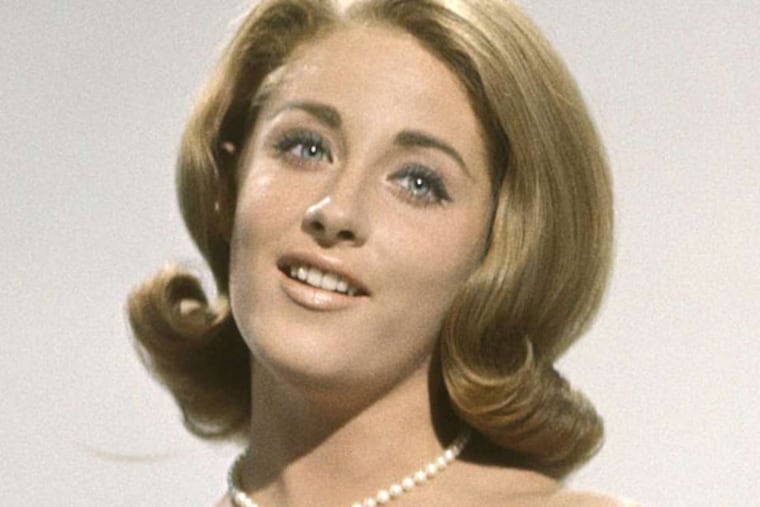Lesley Gore, 68: Protofeminist heroine
Lesley Gore, who died of lung cancer on Monday at 68, is often cited as a protofeminist pop-music heroine, mostly on the strength of her hit "You Don't Own Me," which reached No. 2 on the charts in 1964, when she was just 17.

Lesley Gore, who died of lung cancer on Monday at 68, is often cited as a protofeminist pop-music heroine, mostly on the strength of her hit "You Don't Own Me," which reached No. 2 on the charts in 1964, when she was just 17.
Rightly so. "You Don't Own Me," written by Philadelphia songwriters John Madera and David White (who also wrote "At the Hop" for Danny & the Juniors) is a song of explicit defiance that says what it means in blunt, direct language. "Don't tell me what to do, don't tell me what to say," sang the Brooklyn-born, Tenafly, N.J.-raised teen, who later graduated from Sarah Lawrence College. "And please, when I go out with you, don't put me on display!"
Its status has grown in the five decades since it was originally recorded. It was prevented from reaching the top spot on the Billboard Hot 100 only by the Beatles' "I Want to Hold Your Hand." Perhaps the two most memorable versions of the song are by the unlikely trio of Diane Keaton, Bette Midler, and Goldie Hawn in the 1996 movie The First Wives Club, and its use as a get-out-the-vote PSA with reproductive-rights resonance during the 2012 U.S. presidential campaign. The latter featured appearances by Carrie Brownstein, Miranda July, Natasha Lyonne, Tracee Ellis Ross, and Gore herself. Joan Jett also recorded the song.
"You Don't Own Me" is an empowerment anthem recorded when the roles that women were expected to play in pop were commonly submissive and adoring, as typified by such hits as "He's So Fine" by the Chiffons. Recorded in 1963, the same year as Betty Friedan's feminist milestone book The Feminine Mystique, Gore's song pointed forward to future respect-demanding females, from Aretha Franklin to Loretta Lynn to Beyoncé. And while "You Don't Own Me" is Gore's most assertive song, her first and even bigger hit, the Quincy Jones-produced "It's My Party," is also a protofeminist salvo in its own way. It's a memorable evocation of teen heartbreak, and while it's weepy, they were Lesley Gore's tears, and she owned them. It was her party, and she'd cry if she wanted to.
It's worth noting that the follow-up hit to "It's My Party" was "Judy's Turn to Cry," which was written by Beverly Ross and Edna Lewis, and it departs from this feminist narrative. It finds the singer gloating that Judy, who stole Johnny away in "It's My Party," has now been dumped herself, and that Johnny has come back to his rightful place, where he was before the party started. Sisterhood was not quite so powerful in that case.
Gore had a quite successful second act of her career, performing on Broadway in Smokey Joe's Cafe and cowriting "My Secret Love" for Alison Anders' 1996 film Grace of My Heart.
She's survived by Lois Sasson, a jewelry designer, her partner of more than 30 years.
215-854-5628 @delucadan